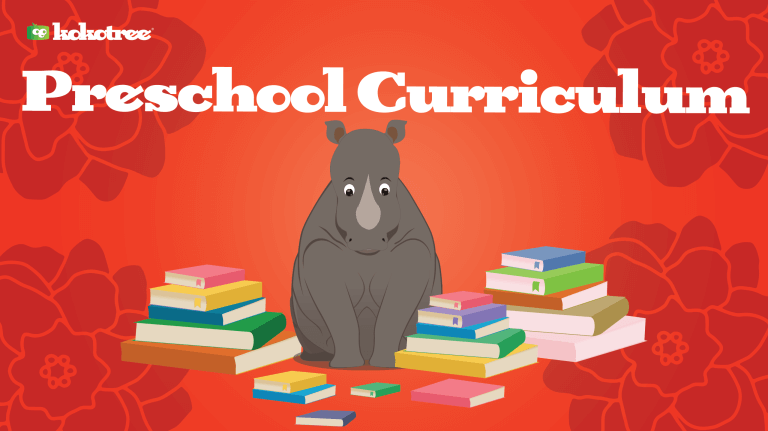

Parents, when choosing a preschool for your little one, it’s essential to know what they will be learning. Each state has different preschool curriculum requirements, but there are some basics that all kids should learn. Here is a look at the most common preschool subjects.
A preschool curriculum is a set of lesson plans and activities designed to teach young children the basic skills they need to succeed in school. These include learning to recognize and write letters, counting, sorting objects by size or color, identifying shapes, solving simple puzzles, and telling stories.
The curriculum also usually includes social-emotional development lessons that help children develop good communication skills and self-awareness. Ultimately, a preschool curriculum aims to provide children with an exciting and engaging experience that prepares them for kindergarten.
One of the things that kids learn in preschool is colors. This is typically done through various activities, such as coloring, painting, and sorting objects by color. By the end of preschool, most kids should be able to identify all of the primary colors.
Kids also learn about shapes in preschool. They will likely learn about various forms, such as circles, squares, triangles, and rectangles. Activities to help teach this concept might include drawing shapes, building blocks, and cutting out paper shapes.
Preschoolers start to learn about numbers and counting. They might count objects around the classroom or at home, practice writing numbers, or play games that involve numbers and counting. By the end of preschool, most kids should be able to count to 20 or higher.
In addition to numbers, kids also learn about letters in preschool. They might know the names of the letters, their sounds, and how to write them. Activities to help teach this concept might include singing songs with letter names and sounds, playing with alphabet magnets, and tracing letters with their finger or a crayon.
Rhyming is another concept that kids learn in preschool. This helps them to become better readers and writers later on. Activities to help teach rhyming might include singing nursery rhymes, reading books containing many rhyming words, and playing games like “I Spy,” where kids have to find objects that rhyme with a given the word.

Get free parenting tips, news, updates, and content from Kokotree.
Phonemic awareness is another important reading skill that kids start to develop in preschool. This involves hearing and manipulating individual sounds (phonemes) in words. Activities to help build phonics awareness might include clapping out the number of syllables in words or saying words that start with the same sound (e.g., “cat” and “car”).
Sight words are common words that are recognized by sight rather than having to sound them out phonetically. Learning sight words helps kids to become better readers because they can quickly identify these words on a page without having to sound them out each time they see them. Activities to help teach sight words might include flashcards or games where kids have to identify the sight word from a group of other words.
Social and emotional development is one of the most important things kids learn in preschool. This includes learning to communicate with others, express emotions, and resolve conflicts. Preschool is an excellent place for kids to learn these essential skills as they are surrounded by their peers and have the opportunity to practice them daily.
Preschool is also an excellent place for kids to develop their language skills. They will be exposed to various new words and concepts and have the opportunity to practice using them in conversation. By the end of preschool, most kids will be able to understand and use basic grammar rules.
In addition to developing their language skills, kids in preschool will also begin to build their literacy skills. This includes learning to identify letters of the alphabet and beginning to understand the concept of reading. By the end of preschool, most kids will be able to recognize some essential words and phrases.
Kids in preschool will also begin to develop their mathematical skills. This includes learning to count, identify shapes, and understand simple concepts such as more/less and big/small. By the end of preschool, most kids will have a basic understanding of numbers and counting.
In preschool, kids will also learn about science concepts such as weather, plants, animals, and the five senses. They will have the opportunity to experiment with different materials and learn about cause and effect. By the end of preschool, most kids will have a basic understanding of science concepts.
In preschool, kids will also explore their creativity through art activities. They will experiment with different mediums, such as paint, clay, and crayons. They will also start understanding color, line, and texture concepts. By the end of preschool, most kids will have developed their unique creative art style.
In preschool, kids will also begin to develop their physical skills. This includes learning to run, jump, throw, catch, and kick a ball. They will also develop their coordination and fine motor skills by cutting with scissors and stringing beads. By the end of preschool, most kids will have developed strong gross and fine motor skills.
Kids in preschool will also begin developing cognitive skills, such as memory and problem-solving. They will practice basic mathematical concepts like counting and sorting, as well as concepts such as cause and effect and categorization. By the end of preschool, most kids will have a basic understanding of these cognitive skills and concepts.
Preschool is a time of significant development for kids as they learn about many different aspects of life. They will learn social and emotional skills, language, mathematics, science, art, physical, and cognitive skills.
While all of these things are important, the most crucial thing kids learn in preschool is how to be socially and emotionally competent.
This means learning to communicate with others effectively, resolve conflicts peacefully, and express their emotions appropriately. All of these skills will help them as they continue through life.



